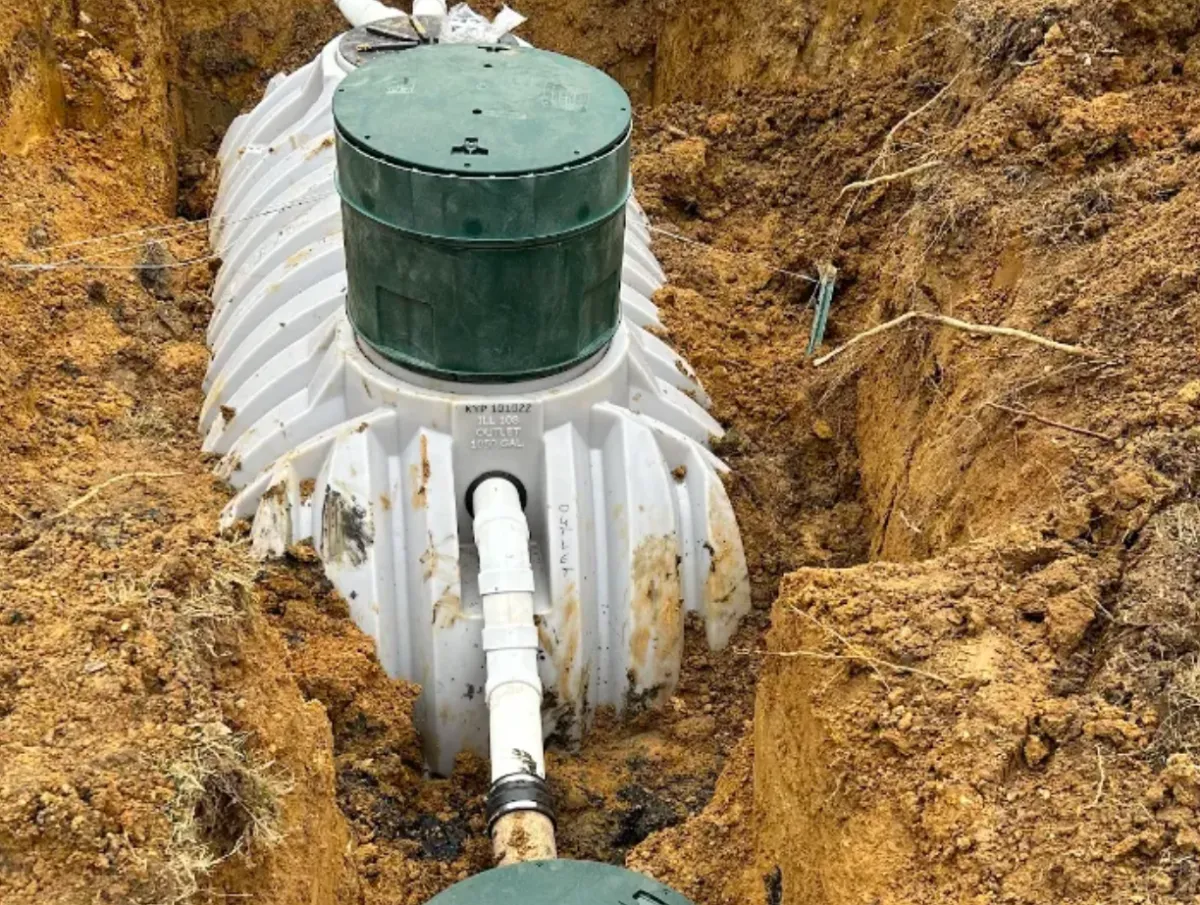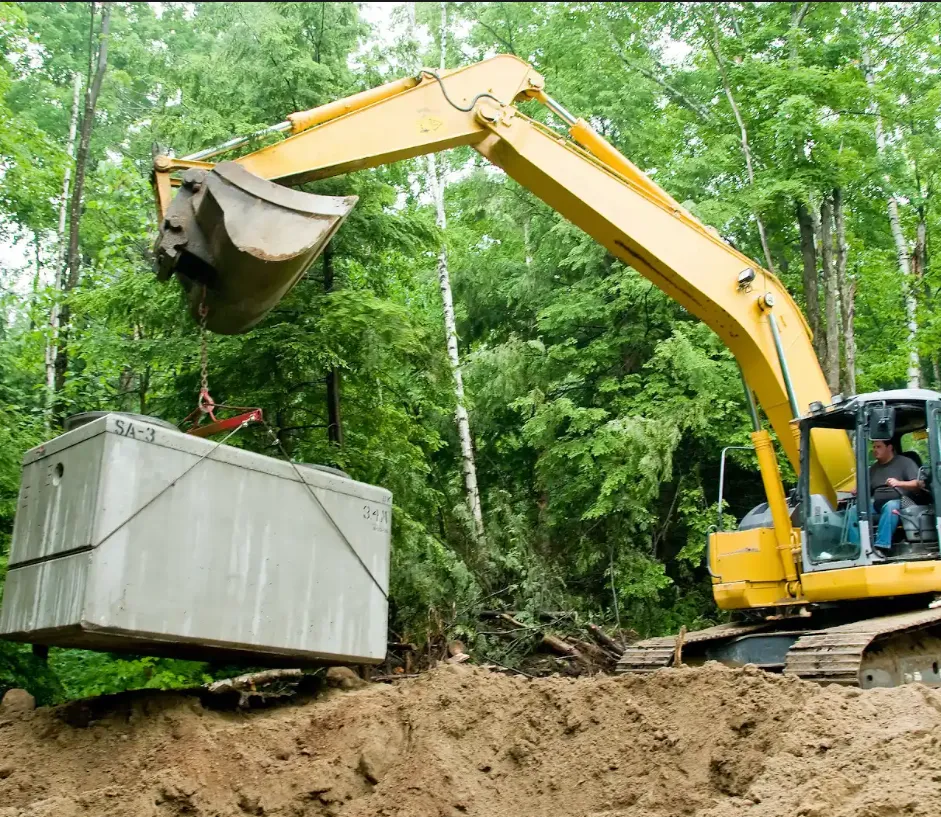
Septic Services Near ,
Understanding Your Septic System Needs
If you're reading this, chances are you’ve noticed something isn’t quite right with your septic system. Maybe there’s an odd smell in the yard, or the water is draining slower than usual. Septic issues are disruptive at best and damaging at worst, and let's be real—no one wants to deal with a failing system. The thought of your backyard turning into a health hazard is the last thing you need. Whether you’re facing your first septic hiccup or trying to avoid another, we understand the stress and the frustration that comes with it.
We know your priority is keeping your home safe, clean, and worry-free, and your septic system is key to that. Our goal is to address your concerns, explain what’s happening below ground, and offer straightforward solutions. This guide isn’t about us; it’s about giving you the information you need to make a confident choice, customized to the needs of your home and property.
How Can We Help?

is Committed to superior quality and results!

AVOID COSTLY MISTAKES:
Do NOT hire an excavating contractor without first reading our free guide:
The ULTIMATE Excavation & Septic "Success Guide."


Common Septic System Problems and How They Affect You
Understanding potential septic problems can help you act quickly and prevent minor issues from turning into costly repairs. Here are some of the most common problems homeowners face:
Slow Draining Water and Backups
If water drains slowly in sinks, tubs, or toilets, it’s often an early sign of a septic issue. A clog or buildup within the system can lead to backups, causing a mess that’s both inconvenient and unsanitary. This can indicate that your tank is either full or in need of some extra attention.
Unpleasant Odors in Your Yard
Nobody wants a stinky yard, but if you catch a whiff of foul smells near your septic area, it’s time to investigate. Often, these odors mean your septic tank is overloaded or there’s a leak allowing waste to escape. Ignoring this can lead to further issues with groundwater contamination.
Standing Water and Soggy Patches
Is your lawn unusually wet, even when it hasn't rained? This could mean that wastewater is leaking, which can eventually lead to a complete system failure. Not only is this unsightly, but it’s also a serious health risk for your household and even your neighbors.
Gurgling Noises from Pipes
While strange sounds in the plumbing might seem minor, they could be a cry for help from your septic system. Gurgling sounds often mean there's an obstruction or buildup, potentially causing more serious problems if left untreated.
Septic System Costs: What to Expect
Budgeting for septic services might feel tricky, especially if it’s your first time. Here’s a breakdown to help you understand what goes into these costs:
Septic Pumping and Cleaning
Routine pumping typically costs between $200 and $500, depending on tank size and location. Regular maintenance like this can prevent bigger, more expensive issues down the line, making it worth the investment.
Septic Repairs and Replacements
Repairs for septic issues, such as fixing leaks or replacing pipes, generally range from $600 to $2,000, based on complexity. Full system replacements, however, are a more significant investment, averaging $7,000 to $15,000.
Factors That Influence Cost
Location, tank size, soil conditions, and the extent of any damage all impact the final price. While it might be tempting to go for the lowest quote, investing in quality service can save you from frequent repairs and costly rework.
Comparing Septic Services: Choosing the Right Fit for Your Home
Knowing what kind of service you need can be confusing, so let’s look at some of the common options:
Septic Pumping vs. Replacement
When should you pump versus replace? Pumping is a regular maintenance task, while replacement is only necessary when parts fail or wear out. If your system is 20 years old or older and frequently needs repairs, replacement may be more cost-effective in the long run.
Professional Service vs. DIY
Some homeowners may consider DIY options to save money, but septic systems are complex and require special equipment. Professional service ensures the job is done safely, meets local regulations, and prevents accidents that could lead to even bigger expenses.
The Best Septic Solutions for Different Property Types
Each property has its own needs, whether it’s a small residential lot or a larger, rural property. Tailoring your septic solution to your property’s specific requirements ensures long-term success.
Residential Solutions
Most residential properties benefit from traditional septic systems or newer aerobic treatment units (ATUs) that process waste more thoroughly, ideal for those with smaller yards.
Commercial and Agricultural Properties
Larger systems are often needed for farms and commercial spaces. Customized systems for high-capacity use are built to manage larger volumes, protecting both the property and the surrounding environment.
See Our

✔️ Commercial Excavation
✔️ Residential Excavation
✔️ Demolition - Smaller Sheds, Barns , Mobile Homes, Single Family Homes
✔️ Dozer Work
✔️ Septic System Pumping
✔️ Septic Installs Traditional Systems
✔️ Septic Tanks - Plastic/Poly
✔️ Septic Tanks - Concrete
✔️ Septic Tank Installations
✔️ Septic Pumps And Septic Alarms
✔️ Pump Replacement
✔️ Lift Stations
Quality Services Launched FAST!

✔️ Drain Field Replacement
✔️ Forestry Mulching
✔️ Grading
✔️ Lot Clearing
✔️ French Drains
✔️ Sewer Repairs
✔️ Camera Inspections
✔️ Pipe Jetting And Thawing
✔️ Drainage Systems
✔️ Full Site Preparation
✔️ Grease Trap Pumping
✔️ Grease Trap Repairs
✔️ Grease Trap
✔️ Land Clearing
What Are You Waiting For?
Septic System Reviews: What to Look For in a Reliable Provider
When looking for a septic service provider, customer reviews are a valuable resource. Here’s what to keep in mind:
Experience and Professionalism
Look for a company with experience specific to your septic needs. Customer reviews can reveal a lot about a provider’s approach and expertise, from communication to service quality.
Reliability and Responsiveness
A reliable septic service will address issues promptly, provide honest assessments, and explain their process. Positive reviews often highlight these qualities, giving you confidence in your choice.
Septic Maintenance Tips for a Long-Lasting System
A little bit of maintenance can go a long way. Here are some simple but effective tips to extend the life of your septic system:
Stick to a Pumping Schedule
Regular pumping keeps your system running efficiently and prevents buildup. Most tanks need pumping every 3-5 years, but this can vary based on usage and tank size.
Avoid Flushing Non-Biodegradable Items
Items like wipes, diapers, and feminine products should never go down the drain. They don’t break down and can lead to costly clogs.
Conserve Water
The less water you use, the less strain on your system. Consider low-flow fixtures and try to avoid excessive water use in a single day.
Making the Most of Your Septic Service Investment
Taking care of your septic system not only extends its lifespan but also saves you money over time. Here’s how regular service can be a great investment:
Preventive Maintenance Saves Money
By tackling minor issues early, you avoid expensive repairs. A little investment in regular care keeps things running smoothly.
Ask the Right Questions
When hiring a septic professional, ask about their experience, warranty policies, and any specific services they offer. A good provider will have clear answers and be transparent about their work.
Hours:
Extended hours by appointment only.
Address: